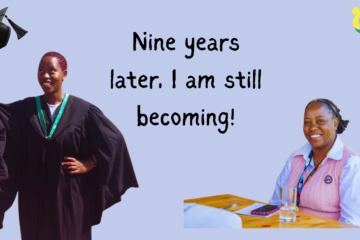There’s something dangerous about desperation — a silent vulnerability that opens doors we’d normally keep shut. It makes us reach, grasp, and cling to promises we might otherwise question. And when you live with a disability in a society that glorifies walking, standing, and “looking able,” that desperation can be weaponized.
The other day, a friend told me about someone who approached him — someone who claimed they had the answer, a drug that could “fix” his weak arm and leg. They’d “been there,” they said. They “understood.” But did they? Did they live with the same spinal injury? Did they face the same daily battles of physical limitation, societal judgement, and internal struggle? No. They hadn’t. But in that moment, their voice sounded like hope — and so, he took the medication.
Will it work? Is it safe? Was that decision made out of trust or sheer desperation?
I’ve sat with these questions. Many of us have.
Because when the world keeps telling you that your worth is tied to how “normal” you appear, you start chasing that illusion — hard.
Normal, as society defines it, walks on two legs. Normal stands tall. Normal doesn’t need a wheelchair, a brace, a caregiver, or a ramp.
This is the lie we’ve internalized: that to be enough, we must return to who we were before injury or illness. And so we try. We try everything — therapy, diets, treatments, pills, prayers, expensive equipment, shady doctors, rituals, and scams dressed as salvation. Not because we’re foolish, but because we’re tired. Because we want to belong. Because no one told us it’s okay to live in this body — just as it is.
How many paraplegics have fallen into this trap?
How many have emptied their savings chasing healing?
How many have lost hope when the miracle didn’t come?
How many have become depressed, anxious, or even suicidal because they felt like they weren’t “enough”?
And how many have died trying?
This isn’t just a personal issue — it’s a systemic one. We live in a world that doesn’t validate disabled lives unless they’re “inspirational” or “overcoming.” We’re not taught to live fully as we are. We’re taught to strive to “fix” ourselves. That’s the true tragedy.
But here’s the truth no one says enough:
You do not need to be fixed. You are not broken. You are not less.
What needs fixing is the system that doesn’t support you.
The infrastructure that doesn’t include you.
The healthcare that doesn’t prioritize you.
The culture that tells you you’re not whole.
So, before we chase another cure, let’s build a community that holds space for our humanity.
Let’s teach ourselves and others that it’s okay to stay — not just strive.
That healing doesn’t always mean walking — sometimes it means accepting, belonging, and thriving in the body you’re in.
If you’ve ever felt this kind of desperation, I see you.
If you’ve ever been manipulated in your pursuit of “normal,” I hear you.
And if you’ve found peace in embracing your body as it is, you inspire me.
Let’s keep having these conversations. Let’s talk — before someone else sells us silence.



0 Comments